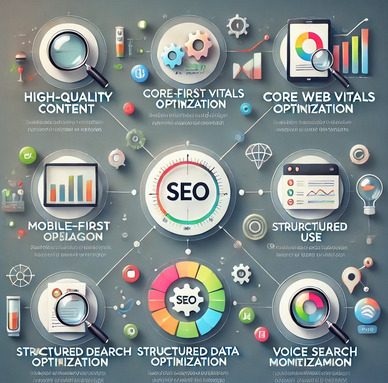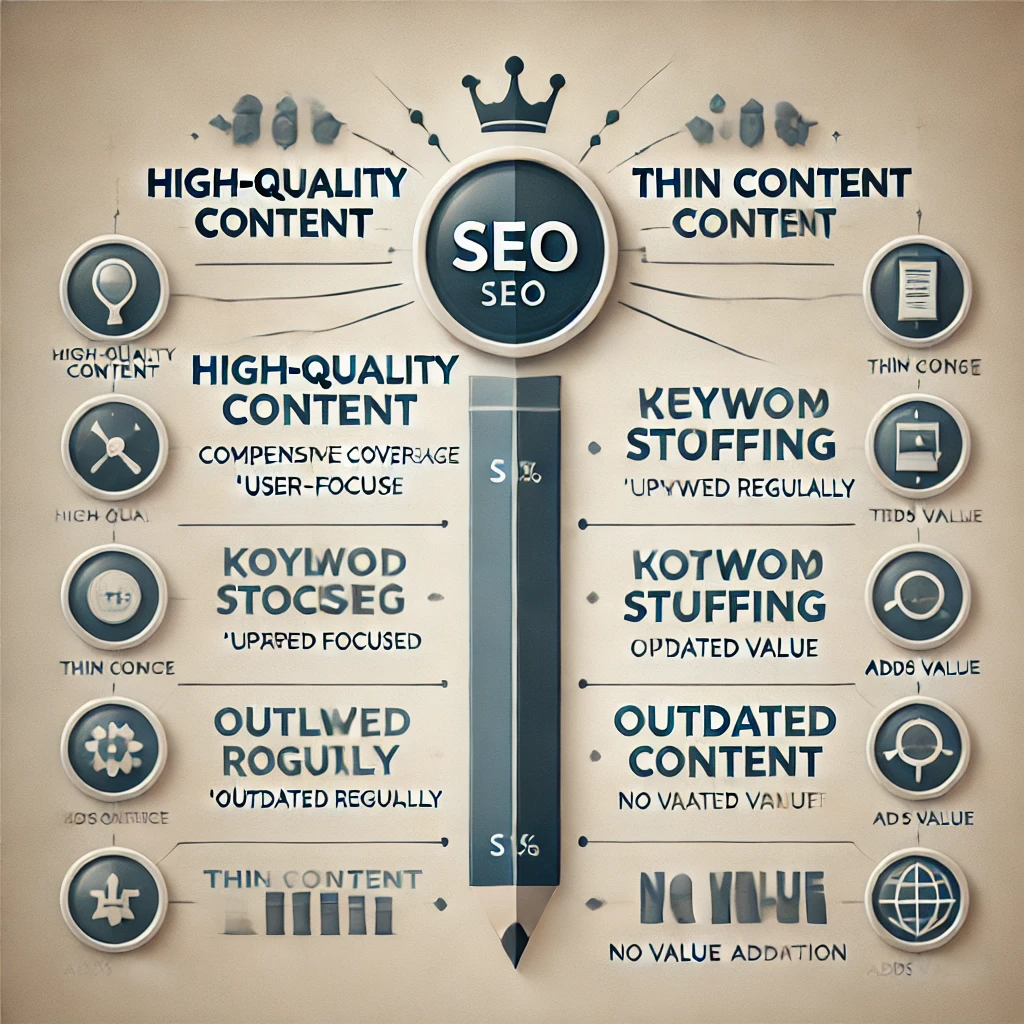08 Nov Adapting SEO Strategies to Search Engine Changes: How to Adjust Your Tactics for Success
Adapting SEO Strategies to Search Engine Changes: How to Adjust Your Tactics for Success

Understanding Recent Search Engine Algorithm Updates
Search engines, particularly Google, frequently update their algorithms to provide users with the most relevant and high-quality search results. These updates often include adjustments to how search engines evaluate page quality, user intent, and content relevance. Here are some of the significant recent changes and trends:
- Helpful Content Update: Google has been refining its approach to prioritize content that is genuinely helpful and created with users in mind. This update means that pages designed primarily for search engine rankings without providing real value to the user are likely to be downgraded.
- Core Web Vitals: This set of metrics introduced by Google focuses on user experience, measuring page load speed, interactivity, and visual stability. Websites that excel in these areas are favored in search rankings.
- Mobile-First Indexing: As mobile usage has surpassed desktop, Google now predominantly uses the mobile version of a website for indexing and ranking. Ensuring that your site is mobile-friendly is not just a recommendation but a necessity.
- BERT and MUM Updates: BERT (Bidirectional Encoder Representations from Transformers) and MUM (Multitask Unified Model) are designed to better understand natural language and context. These updates mean that search engines are now more adept at interpreting nuanced user queries and delivering content that closely matches the searcher’s intent.
- Spam and Link Quality Updates: Google has been cracking down on spammy and low-quality backlinks. Websites that engage in manipulative linking practices or use irrelevant backlinks may face penalties.
Quick Tip: Stay updated with algorithm changes by following trusted sources like Moz and Search Engine Journal.
Adjusting SEO Strategies to Meet New Algorithm Demands
To align your SEO efforts with these updates, it’s essential to understand the implications of each and adjust your tactics accordingly.
1. Prioritize High-Quality, User-Focused Content
Key Points to Remember
Content remains king, but search engines are getting smarter about understanding what quality means. Here’s how to adapt:
- Focus on User Intent: Creating content that matches what users are searching for—whether it’s informational, navigational, or transactional—is key. Utilize tools such as Google Search Console and keyword research tools to understand the questions and topics your audience is interested in.
- Depth and Relevance: Provide thorough answers to user queries and ensure your content adds value. Content that is overly thin or stuffed with keywords without context will not perform well under the latest updates.
- Regularly Update Content: Fresh, updated content can signal to search engines that your site is active and relevant. Consider revising old blog posts with updated statistics, new sections, or more in-depth information.

For example, our blog post on “Top Content Optimization Techniques for 2025” offers further insights into creating user-focused content. Read more here.
2. Optimize for Core Web Vitals
Why Core Web Vitals Matter
Improving user experience is essential, and optimizing for Core Web Vitals is a direct way to ensure your website is technically sound.
- Improve Loading Times (Largest Contentful Paint – LCP): Ensure that your website loads the main content quickly. This can be done by optimizing images, minifying CSS and JavaScript, and leveraging content delivery networks (CDNs).
- Enhance Interactivity (First Input Delay – FID): Reduce the time it takes for your website to become interactive by optimizing scripts and removing non-essential third-party scripts.
- Ensure Visual Stability (Cumulative Layout Shift – CLS): Avoid sudden shifts in your website layout by setting proper size attributes for media and ensuring ads do not push content unexpectedly.
Advanced SEO Tactics for Sustained Success
1. Content Hub Strategy
Key Points to Remember
Creating a content hub involves organizing content around a main topic page and supporting subtopics, making it easier for search engines to understand your site structure and context. This tactic helps to:
- Enhance Internal Linking: Strengthen the relevance of your content through strategic internal linking, boosting your topic authority.
- Encourage Longer Dwell Times: Readers are more likely to explore related articles and stay on your site longer.
2. Optimize for Voice Search
Why Voice Search Optimization Is Important
With the increasing use of smart speakers and voice assistants, optimizing for voice search is essential. Voice queries are typically longer and more conversational, so:
- Use Natural Language: Incorporate questions and answers that mirror spoken language.
- Target Featured Snippets: Aim to have your content appear in featured snippets by answering questions directly and concisely.
Staying Ahead of Future Algorithm Updates
Adapting to search engine changes is an ongoing process. Here’s how to stay prepared for future updates:
- Continuous Learning: Follow SEO news sources such as Moz, Search Engine Journal, and Google’s Webmaster Central Blog to stay updated on any upcoming changes.
- Regular Site Audits: Use tools like Screaming Frog, Moz, or SEMrush to conduct periodic site audits to identify and fix technical issues.
- User Feedback: Pay attention to feedback and analytics to understand how users interact with your content and where improvements can be made.
SEO Insight: Keeping a close eye on how your competitors are adapting can also provide valuable information for your own strategy.
Conclusion
Search engine algorithms are continually evolving, and staying informed and adaptive is essential for SEO success. By prioritizing high-quality, user-focused content, optimizing for user experience, and aligning your strategies with mobile-first and voice search trends, you can maintain and improve your search visibility. Embracing these tactics ensures your SEO efforts stay effective in the face of algorithmic changes and keep you ahead of the competition.
Need expert help with your SEO strategy? At Webociti, we specialize in crafting SEO solutions that adapt to the latest algorithm updates and drive measurable results. Our team can guide you in optimizing your content, boosting your website’s performance, and developing a comprehensive strategy tailored to your business goals.


